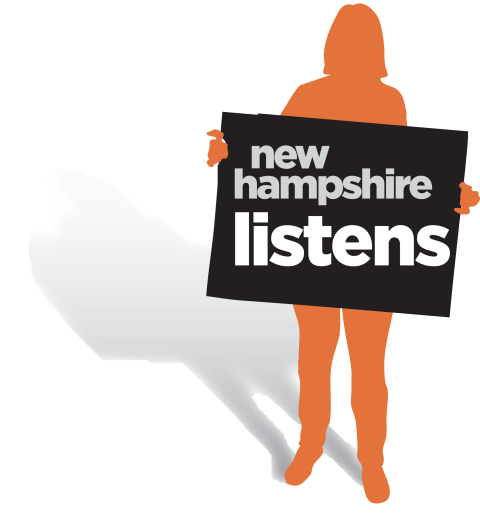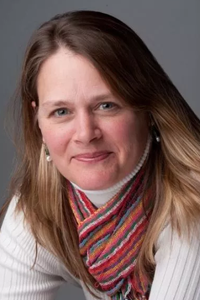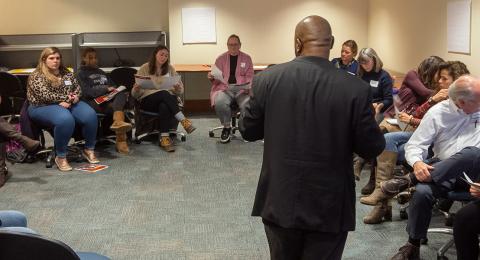
NH Listens is a community engagement initiative of the Carsey School of Public Policy at the University of New Hampshire. We are committed to being fair-minded in our mission of creating and sustaining an inclusive process for public engagement. We partner with public officials, organizations, and leaders in all sectors to build relationships, talk about difficult subjects, build coalitions, and gather broad input that can lead to improved practice and policy.
Since 2010, we have worked at the local and state level to support respectful conversations of complex issues affecting New Hampshire residents' everyday lives. Our work supports community-led action and change.
New Hampshire Listens is a proud anchor partner with Everyday Democracy, a national organization supporting everyday people working to strengthen local democracies through dialogue, engagement, and action with a racial equity lens. NH Listens has been an anchor partner with Everyday Democracy since 2015.
Our Mission
We bring people together to talk, listen, and act so communities can work for everyone.
Our Values
Voice and Equity
Nothing about us without us1
We believe people bring voice and agency to community decision-making. We see patterns in communities that elevate the voices of some and marginalize others. We believe equitable outcomes are possible and more likely when people work together to remove barriers, build more inclusive public participation across divides, and ground solutions in local knowledge.
Be real to build trust.
Building public trust takes time and ongoing attention. We co-design and facilitate a process to generate solutions for pressing challenges—even when the work is messy, uncertain, and overwhelming. We believe in doing what we say we will do and being transparent in our methods and our motives. We offer skilled, observant, and honest people to support your initiative.
You cannot be an effective problem-solver from a distance2
The only cure for bias is other people2
Collaboration can be hard. We believe solving complex problems will require it. A mix of perspectives helps us recognize and temper our own biases (we all have them). We help groups face biases of all kinds and bring skills and attitudes that build trust for ongoing partnership and community goodwill.
There are things we don't know
Our communities struggle with difficult questions to which no one person knows the answer. We bring humility and a can-do attitude to our work. We believe it takes data and stories from neighbors to create change. We collaboratively create space with partners, so people can grapple with hard options and find pathways to move forward together.
We are in it for the long haul
We respond to current circumstances in local communities and bridge projects by committing to New Hampshire over the long haul. Most communities experience multiple initiatives that lack connection and integration. Our goal is to leave behind approaches that build muscle memory for effective and fair collaboration so that one project brings strength and capacity to the next one.
- Nothing About Us Without Us: Disability Oppression and Empowerment, James I. Charlton (1998), JSTOR online access.
- The Righteous Mind by Jonathan Haidt

At New Hampshire Listens, we're committed to making a difference in New Hampshire's cities, towns, and communities. We work with wonderful organization from across the spectrum–from schools and libraries to community and nonprofit groups–helping them to deepen authentic engagement and justice in public life. We're proud of the work we've done and continue to do throughout the state.
~ Michele Holt-Shannon | Director, NH Listens
